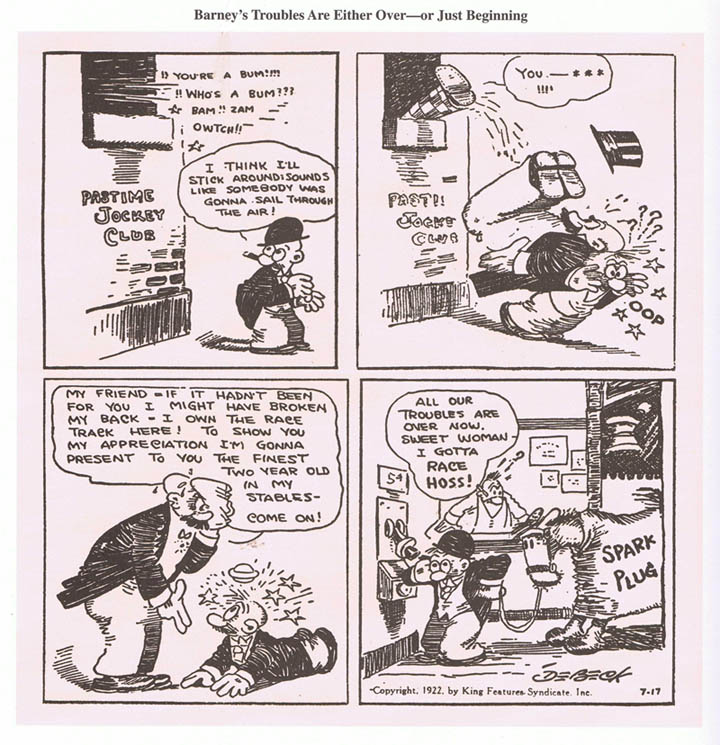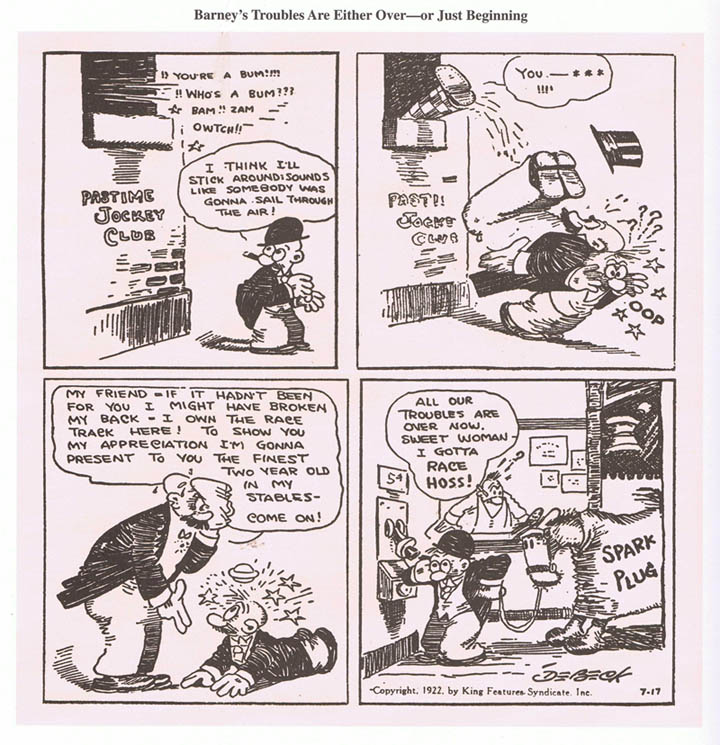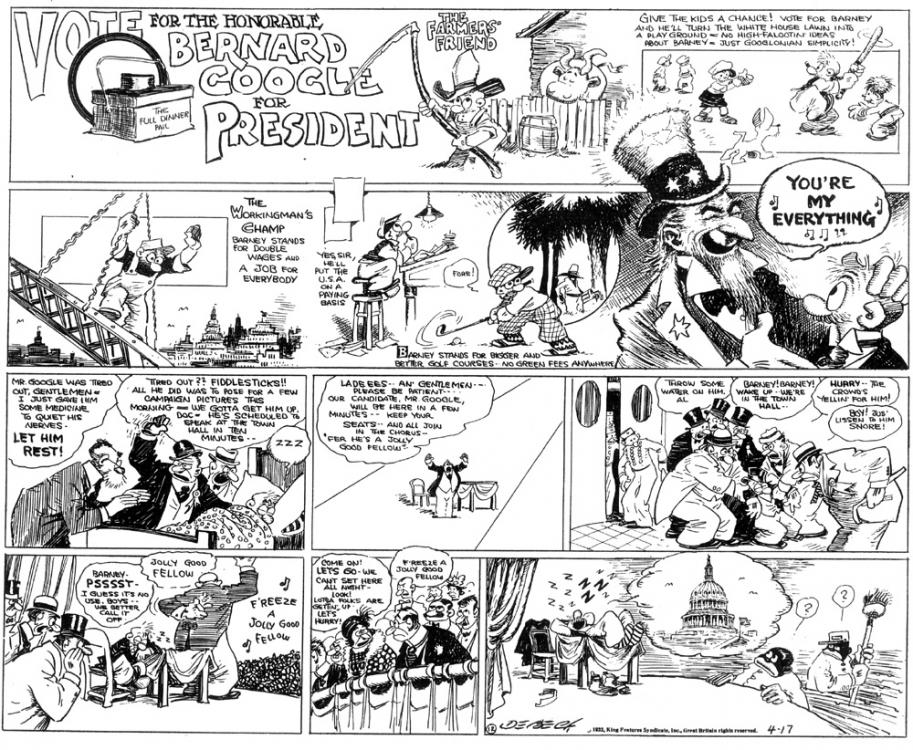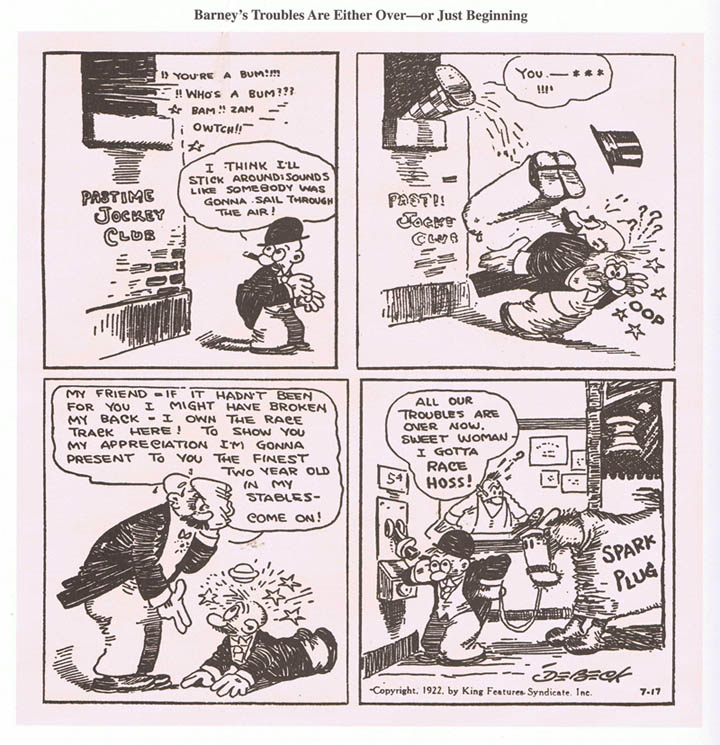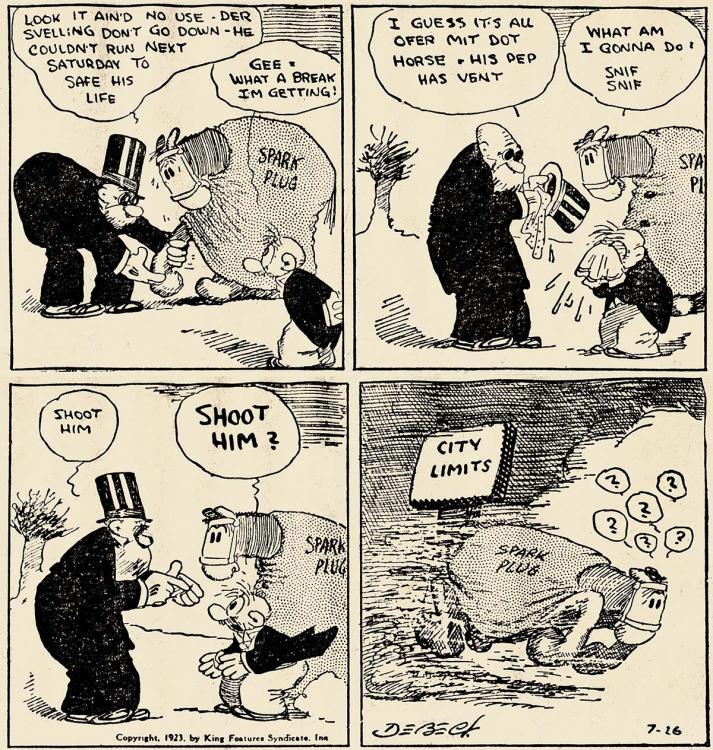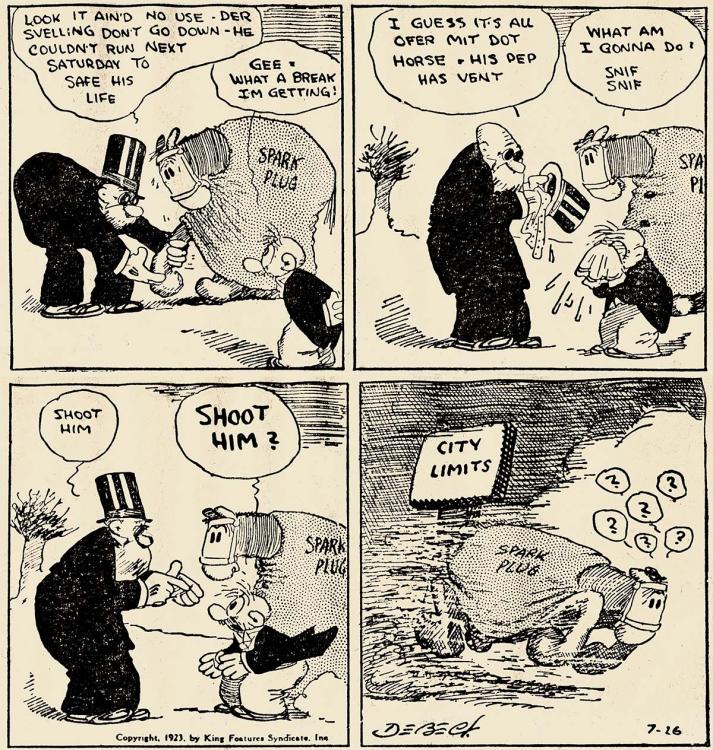-
Posts
13,205 -
Joined
-
Last visited
-
Donations
0.00 USD
Content Type
Profiles
Forums
Events
Blogs
Everything posted by Larry Kart
-
Didn't even know the book existed. About the interview, again I think that the estimable WEA publicist Sue Satriano greased the ways. I would guess, too, that my being a jazz person rather than a rock writer who was interested in her personality may have played a part.
-
Didn't talk to Leonard Cohen. Did talk to Irving Cohen, though, a CPA.
-
I meant moody Canadian singer-songwriters I might have talked to. Neil Young I missed. Gordon Lightfoot too. Likewise Rob McConnell.
-
Here it is, but honestly I've forgotten that I ever talked to her. Reading it now, it sounds like we had a pleasant but reserved encounter -- the latter being what one might expect. BTW, I also don't recall now thinking that it was big deal for her to agree to be interviewed, perhaps because I wasn't that up on Mitchell's history as far as interviews went. Actually, if there was a history there, I may have gotten my foot in the door and/or Mitchell may have been guided in my direction because of WEA publicist Sue Satriano, who was a lovely person and may have vouched for me. http://jonimitchell.com/library/view.cfm?id=1972 Are there any others? Who am I missing? BTW, the Mitchell interview was, as they say, a "phoner." Also, BTW, thinking of Sue Satriano, I think she set up an in-person interview for me with Neil Diamond where he refused to let me use a tape recorder because, so he explained, he was afraid that I'd give the tape to some disc jockey who would use portions of it on the radio. I should have just said, "OK, you paranoid piece of s--t" and walked out, but we continued to talk while I relied on scribbled notes and memory.
-
I heard him with several editions of the Jazztet several times (including when that band was brand new) and later on at the Brown Shoe on Wells St. in Chicago with his quartet with Steve Kuhn, Pete LaRoca, and (I think) Steve Swallow -- the group that made the "Sing To Me Softly of the Blues" (Atlantic). IIRC, the rhythm section was very interactive (think Joe Henderson's "Basra") , and Art (on flugelhorn throughout I think) was in fine form.
- 28 replies
-
- trumpet
- flugelhorn
-
(and 1 more)
Tagged with:
-
Whew! I'm getting scared in retrospect.
-
"C'mon man, Lew Tabackin knows big band playing/writing, and knew it before this particular big band. I've heard enough stories about Lew Tabackin being a very, verycritical perfectionist about everything musical to have no doubt whatsoever that if he thought his wife's writing was not what it was supposed/needed to be, he'd have stopped it dead in its tracks and not let it get back up until it had been made right." You certainly know a lot about music, but I think you may be forgetting some things about how wives and husbands can interact. Let's go ask Charlie Mariano.
-
I first became aware of Barton as more than a name through Mort Sahl, when I was out in LA interviewing Mort at some point in the early '80s. We kind of bonded -- Mort in many ways was a great guy -- and he took me to a club (the one whose name everyone knows -- Donte's?) on a Monday night to hear Bob Florence's band play some of Dee's charts on a night where, thanks to some confusion in the "who can and can't make it?") communications department, no less than eight top-drawer studio trumpeters showed up, and they all played -- visually, what a lineup; IIRC no one had a neck, and sonically, good grief. Mort's attitude toward Barton was very worshipful -- like Dee was the son of God (i.e. Stan). Very strange and kind of moving to feel so directly what Kenton meant to Sahl. If only Clint Eastwood could have played Stan in a bio pic at the right time. BTW, as you probably know, both Mort and Clint were far-gone Kenton fans when they were college friends out in LA back in that day. As Mort put it, emphasizing the phallic/rebellious element of Kentonia: "Brass out to here!"
-
As I hope you know, in the more than sixty years I've been listening I've found myself open to all kinds of music and to the ways those kinds of music work. and to all the various ways music can work in general-- from Jelly Roll Morton and Ellington to Ornette and Evan Parker, from Gesualdo to Chopin to Brahms and Morton Feldman , from Balinese gamelans to Indian ragas to Retimbeka (sp?) to Bobby Blue Bland and Clarence Ashley-- and to all (or many) points in between. And in the course of all that listening, I've found that there's one basic principle that applies across the board, one that sounds as though it would have to be totally subjective (and it is to some degree) but finally (or so I think) is not totally so -- one that with a fair degree of honest investigation, turns out to have a reasonably objective basis. That principle? Interesting versus boring. And before you scream or cry foul, let me try to explain. Interesting, of course, probably needs no explanation -- unless and until I begin to go on about the aesthetic joys of (to borrow a line from Le Roi Jones, when he still wrote under that name) a guy who can whistle with peas in his mouth. But a judgment of boring does call for some support. Now boring can simply mean, "I don't get it" -- as in "I don't get what's going on," and/or "I don't get what's intended." And any such judgment has to be dismissed, until and if one comes to know what's going on and what's intended. Now there are of course kinds of music or particular works that -- partly through design in some instances; partly, in others, in all innocence -- are going to defeat or escape the nets of attentiveness of many even quite-open-to-experience listeners: say, OTOH a four-hour Feldman string quartet or Mompou's Music Callada (sp?); or on the other a chamber work by Fernyhough or Lachenmann: the former two because (Feldman) what happens over much time seems so minimal or (in smaller units of time) so darn obvious and simple (Mpmpou) as to be near meaningless; the latter two because the events of the music are so dense and abrupt that they seem near impossible to take in/sort out (Fernyhough) or the events also involve the extreme deformation/exacerbation of the sounds of the instruments (Lachenmann). OK, when one encounters music of these sorts (and there are other analogous sorts -- in jazz is Cecil in excelsis close to one such?), it's pretty clear pretty soon, or even right away, that (if you will) some element of "challenge" to the way music previously has been made and heard is involved -- even in the case of Mompou, who may for the most part be the utterly simple soul he seemed or pretended to be (but Satie?). Back to Toshiko now -- I tried to explain why I found her music to be fairly boring: because typically it is conceived in terms of) horizontal, linear meaning, but when it comes to vertical harmonic and timbral activity/meaning, while there's nothing overtly "wrong" going on in that realm, there's not much happening there that sounds meaningfully right; thus, while her pieces chug along horizontally without any clashing of lines, these lines never seem to interact, rub against each other if you will, even acknowledge musically that the other lines in the piece exist. And remember BTW that were taking about pieces that are conceived for a large jazz ensemble of conventional makeup (reed and brass choirs, rhythm section), not, say, for a single' or two-horn combo where a wholly or essentially linear approach might make good sense. Now it might be claimed that either I've inaccurately described what Toshiko does, or that she's also doing other things, musically important things, that I either hear but don't get (i.e. understand) or just fail to hear at all. Or is it, along those lines, that there's some musically meaningful "challenge" (see above) to the way music previously has been made and heard that is involved in Toshiko's writing and that, again, I either don't get that or more or less airily, arrogantly reject it? OK, Jim, you or someone else tell me what virtues -- subtle and under wraps or plain to all ears that are able and willing to hear -- I'm missing in Toshiko's writing. Further, recall FWIW that Frank Wess' pieces, played on the same night by Toshiko's own band, clearly seemed to this not inexperienced listener to possess the very qualities that her writing seemed to lack. Likewise, up to a point, there's what sgcim said in a post above of Toshiko's "tuning blues" chart: " It just goes on and on, chorus after chorus....There's nothing wrong with it, but it just feels like it goes on and on, no transitions, no interludes, no contrasts, just on and on till the end." Is Toshiko, then, some sort of inside-out innovator, a kind of Morton Feldman of jazz who has realized that pieces that just go "on and on" can have, by that token, a novel and potent meaning all their own? Or is it that, as my veteran composer-arranger-bandleader friend says, Toshiko lacks "basic craft knowledge with voicings." (Surely you, as a musician yourself, know to what he referring to there.) Now I am more than a little wary of such statements about "basic craft knowledge" -- not only because they smell of what I think of as "the jazz locker room of self-designated/ self-congratulatory insiders" but also because such judgments ofgten have proved to be utterly inadequate (if not just plain false) in relation to novel and crucially important developments in the music: e.g. Ornette, to pick the most obvious example. But that doesn't mean that in certain areas of the music there is not "basic craft knowledge" that does apply, until and unless.... The question, for me, is whether Toshiko is such an "until and unless" figure. Could be, but I sure don't hear it.
-
Do you know the 1995 album "The Dallas Jazz Orchestra Plays Dee Barton"? I'm halfway through it right now, and aside from Barton's at best quite striking writing, I'm impressed by the loose and hairy solo work of altoist Karolyn Kafer -- not unlike James Spaulding, perhaps. Do you know of her? Also, on one track there's what may be the most bats--t solo Don Menza ever recorded. Don't care, though, for the rather slam-bang drummer Rich Redmond, Otherwise, I'm particularly impressed by two slowish mood pieces of Barton's, "Listen" and "Rapture" -- not a vein I would have expected from him, but he's got something individual to say in it.
-
What it means, as I understand it, is that the lines in Toshiko's charts typically have (and are conceived in terms of) horizontal, linear meaning, but when it comes to vertical harmonic and timbral activity/meaning, while there's nothing overtly "wrong" going on in that realm, there's not much happening there that sounds meaningfully right (i.e. no "buzz") because, so my musician friend contends, of her "lack of basic craft knowledge with voicings." In fact, years before my friend volunteered this judgment, I heard the same thing quite dramatically while reviewing a mid-1980s performance by Toshiko's band at Rick's Cafe Americain in Chicago. Her pieces chugged along horizontally without any clashing of lines, but the lines never seemed to interact, rub against each other if you will, even acknowledge musically that the other lines in the piece existed. What made this particularly striking was that there were two or so pieces in the book by band member Frank Wess, and the difference along the aforementioned lines (so to speak) between his writing and the leader's was day and night. As it happens, I said just that in my review, which led to something a bit odd that I may have mentioned here before -- a postcard arrived later in the week from none other than Bill Russo, whom I'd never met, saying that I'd gotten things just right. Not that Russo's musical judgment there is the final word, anymore than mine was, but I found it interesting that he felt compelled to weigh in as he did.
-
I don't think Toshiko's problems as a writer (if she does have such problems -- as a fairly casual listener to her work, my sense is that she does) have anything to do with blackness or lack of same. As a composer-arranger-bandleader friend put it: 'Her biggest problem is lack of basic craft knowledge with voicings. She doesn’t know how to voice chords so that they get a “buzz” in them. These deficiencies are less apparent in her Japanese-inspired pieces like “Sumie.” Her more conventional jazz pieces, though, are blah. I don’t know any composer-arranger of distinction who is a fan of hers. Though her bands did very well what she asked of them --proving that you CAN polish a turd.'
-
"Though he stops short of murder George [Vavasor] causes [his sister] Kate to break her arm in what must be one of the few instances of violence directed by a brother to a sister in Victorian fiction.” IIRC, George wants Kate to release her legitimate hold on funds that he needs. When she refuses or hesitates while they are on a walk through the countryside, he angrily throws her to the ground, breaking her arm.
-
Some early Turner I found attractively clever. It was the music produced by this latter-day Turner band that almost made me want to slit my wrists. That Turner band with another trumpet player, Jason Palmer. Re: the chuggng greyness of the writing and the solo work, I'm reminded of what a musician-friend once said of Toshiko: "A composer-arranger who used to play in her band quipped that 'her writing sounds like they switched the fourth tenor and baritone books and didn’t tell anybody.'"
-
Not sure what you mean by "don't hear"? You don't hear me saying that or you don't understand, given the nature of Turner's playing, why Turner himself has made that claim? I haven't mentioned it because given Turner's rather surface-y relationship to Marsh, I don't think it matters much. Turner can claim all he wants, but he's still not that interesting a player IMO. BTW, Turner in recent times has adopted a seemingly self-created mode of almost a-melodic grayness that is enough to induce significant depressive symptoms (at least that was the effect on me, when I heard his band with Avishia Cohen in concert about a year ago).
-
No, Ted Brown was not at Warne's exalted level, but I don't buy the implicit dis in the above comparison. Ted, within the ambience that itself formed Warne and within the ambience of Warne's influence as well, was a highly creative and imaginative player. Was Sonny Stitt at the same level of creativity and imagination as Bird? No. Was Stiit at his best highly creative and imaginative? Yes. And Mark Turner and Ted are two quite different sorts of players -- in terms of historical formation at the least.
-
Combines material from two Palo Alto albums recorded at Carmello's in LA in 1981. The first pairing of Gibbs and DeFranco, a good team.
-
I have a friend who ran a jazz club in Davenport, just across the river from Rock Island, in the '60s. A happening area, it seems. And don't forget the other two of the Quad Cities, Bettendorf and Moline.
-
Pardon the racist image in strip three above. And pardon the duplicate images below, can't seem to delete them.
-
What do you think of "The Toonerville Trolley" by Fontaine Fox? Maybe in the wash a little too rural to inspire deep attachment for me, but definitely a winner. In its heyday Billy DeBeck's "Barney Google" was superb IMO. When Snuffy Smith joined the cast in 1934 and soon took over, I lost all interest. What do you think of "The Toonerville Trolley" by Fontaine Fox? Maybe in the wash a little too rural to inspire deep attachment for me, but definitely a winner.
-
Absolutely. On "Subconscious Lee" from "All Music" (Nessa), Warne's solo begins with a dazzlingly complex unbroken improvised melody that lasts almost an entire chorus.
-
Continuing to enjoy all the vintage Tracy strips I can get my hands on, volumes handsomely produced and not that expensive used. The sheer drive and often grotesque/borderline sadistic inventiveness of Chester Gould is what tickles me, plus the fact that a strip that was so frequently grotesque and violent (all in the name of the law, of course) could have been of so immensely popular in an America that professed to be decent and relatively buttoned up. I think of other related items on my vintage popular culture list — all of them very popular in their times, all of them arguably as quirky and inventive as hell — Segar’s “Thimble Theater” (i..e Popeye), probably “Little Orphan Annie” (though I don’t know it that well), vintage "Barney Google," the radio show “Vic and Sade,” etc. “Krazy Kat” probably doesn’t count because it wasn’t that popular, likewise “The Bungle Family.” Other terrific and very popular strips like “Captain Easy” don’t give me the same feeling, fine as they are, because they aren’t particularly weird. BTW, my reactions here don’t have anything to do with nostalgia, because I never paid much attention to any of the above in childhood. Perhaps a comparison could be made between Chester Gould and Dickens — in a seemingly straightened age, mass popularity of material that often was as grotesque, even savage, as could be.
-
Thanks, Jim -- I don't agree, but 'just "trumpet-y" floo-faw' makes what you're hearing from Branch quite clear.
-
Yes, but on the album Allen Lowe found evidence of amatuerishness, and Sangrey, unless I misunderstand his brief remark, seemed to agree that her trumpet playing was nada.
-
Certainly possible that they do, but that's one of the things I'm curious about. If they like Evans and TBH at all, what do they find off-putting about Branch?
_forumlogo.png.a607ef20a6e0c299ab2aa6443aa1f32e.png)




